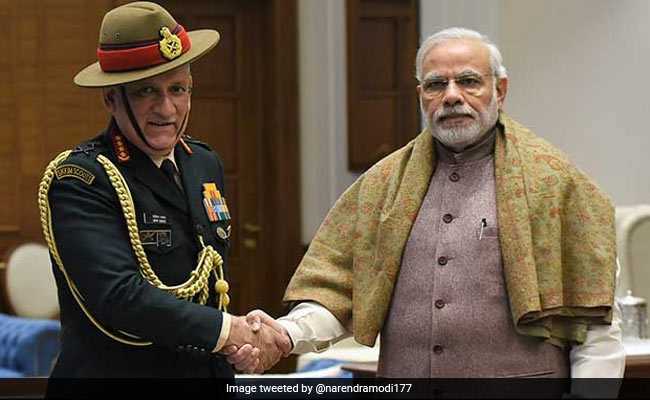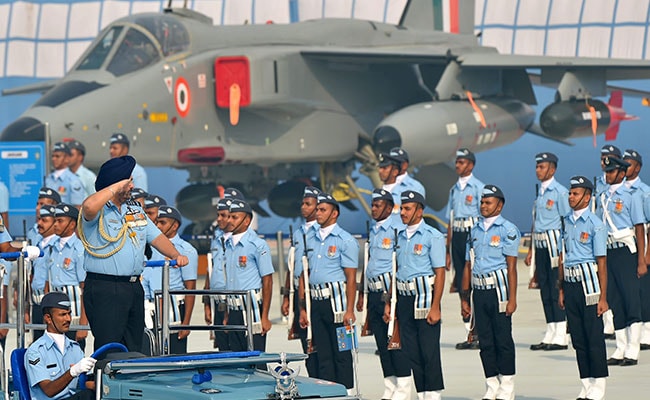But now that I am back in India, I can express more freely the dread I feel at the way things have been going. The use of senior armed forces officers to make political statements at the behest of, or on behalf of, or in support of the BJP government's political programme is, as The Indian Express put it, "to tread perilous ground". For, whereas hitherto it is the Pakistan army that has been using the government to make statements on the army's behalf, we in Modi's India are experiencing the entirely new phenomenon of very senior armed forces officers making political statements at the behest of, or to the benefit of, the BJP government's political predilections. Even the rather staid The Times of India has editorially warned that since "the Indian army has been known and respected for its professionalism", it is essential that the Chief of Army Staff "must strictly maintain the army's neutrality - else we would become a bit like Pakistan". (Trolls may please note that this is ToI speaking, not poor li'l me!) For if this misuse of our defence forces is not halted immediately, instead of the great admiration the people of India have for our brave jawans and their officers, we might find ourselves slipping into the position of the people of Pakistan who have nothing but contempt for their politico-generals.
The first example I would cite relates not to the army but the air force. At a press conference on November 17, 2017, there was a clamour from the mediapersons present to substantiate the claim the Raksha Mantri had made that her government had obtained the Rafale jet fighters at a price "much cheaper" than the previous government's negotiated price. While she did not have an immediate answer to that googly, she asserted that she was "not shying away" from answering the question but would have her Defence Secretary furnish the comparative price chart.

Army Chief General Bipin Rawat with Prime Minister Narendra Modi
Dhanoa, of course, was merely mimicking what his army counterpart, Gen. Bipin Rawat, has been perfecting: grandstanding in public through capturing the attention of the media, not by limiting his remarks to matters military but by repeatedly crossing the Lakshman Rekha that keeps strictly apart the domain of the military and the world of politics. The comments he has made include notoriously his blasting "Kashmir politics and its education system"; "India's diplomatic stance towards China in the Indian Ocean region"; his championing a "two and a half front war" which contributed to the Doklam crisis; his denigrating the search for a "political initiative in Kashmir" since "adversaries must be afraid of you and at the same time your people must be afraid of you" (sic!); his decision to reward Major Gogoi "to raise the morale of the army personnel in Jammu and Kashmir" even as the army itself had constituted a Court of Inquiry to investigate the Major's action in tying a man who had just emerged from a polling booth to a jeep and parading him around several villages; his aching desire to see people "firing weapons at us" instead of just pelting stones so that he could then do what he "wants" to do.
But all this fades into the background in the light of his latest intemperate remarks on the situation in the North East, where, he claimed, a "planned influx" of Muslims from Bangladesh was taking place as part of the "proxy game" being executed by "our western neighbour" with support from across the "northern border". He went on to grossly interfere in the domestic politics of Assam by providing as proof of his political opinion the "faster" political growth of the All-India United Democratic Front than even the BJP. It is to be noted that it was the central government led by the BJP that had promoted Rawat as COAS over the heads of two more senior generals. Is that why he was bemoaning the slower growth of his patron party? Whether the AIUDF is communal or not is for the Election Commission, not the COAS to decide. Indeed, given that AIUDF was a coalition party of the Tarun Gogoi government, to cast such aspersions on a duly recognized political party is certainly no part of the army's remit.

Chief of Air Staff Air Chief Marshal Birender Singh Dhanoa
When we became independent, there were 51 member-states of the United Nations. Now there are 193. None of these close on 150 newly-independent nations except us have initiated and uninterruptedly sustained a constitutional democracy despite changes in the ruling party. This is fundamentally because the line of demarcation between civilian responsibilities and army duties was clearly, carefully and unambiguously laid down at the very commencement of our Independence by the first Prime Minister, Jawaharlal Nehru, and has been rigidly enforced by all Indian governments (of whatever colour) until the advent of Narendra Modi, who sees great political advantage in getting the armed forces to speak on his government's behalf, in however intemperate terms. As The Indian Express editorial cited above concludes, "While General Rawat must reflect upon his tendency to make sensitive public pronouncements, it is equally imperative for the political leadership to counsel restraint". There is nothing to indicate that the civilian government is enforcing restraint on its Chief of Army Staff.
(Mani Shankar Aiyar is former Congress MP, Lok Sabha and Rajya Sabha.)
Disclaimer: The opinions expressed within this article are the personal opinions of the author. The facts and opinions appearing in the article do not reflect the views of NDTV and NDTV does not assume any responsibility or liability for the same.


